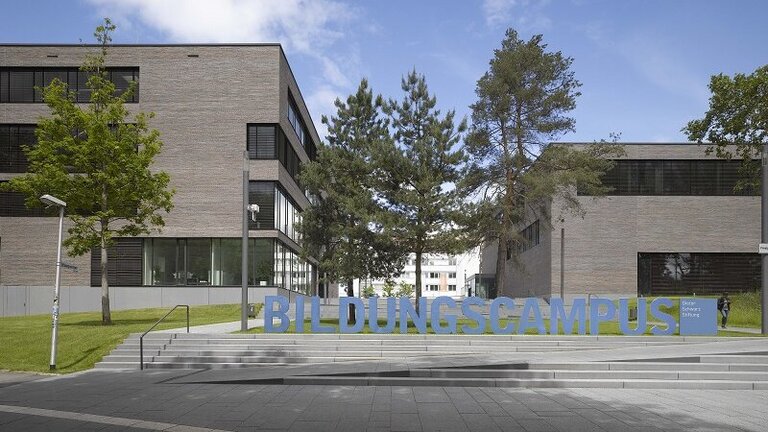Heilbronn, June 7, 2021. Carbon dioxide, which impacts the environment and damages the climate, is emitted both when heating the buildings on the Dieter Schwarz Foundation Education Campus or when driving to it. For this reason, the Heilbronn Education Campus has set itself the goal of becoming carbon neutral by 2030 as part of its sustainability strategy. This also supports the city of Heilbronn’s recently announced goal of achieving climate neutrality. Stuttgart-based planning and consulting company Drees & Sommer SE is undertaking a carbon audit for the education campus and advising Schwarz Campus Service GmbH & Co. KG on its carbon strategy.
In future, the Dieter Schwarz Foundation Education Campus will not only maintain its reputation as an innovative center of learning and research, but will also be actively supporting the city of Heilbronn as it strives to achieve its goal of climate neutrality. To this end, a sustainability strategy is currently being developed on campus with a focus on reducing climate-damaging carbon dioxide emissions. The education campus is already supplied with green power from German hydroelectric power plants. The carbon-reduction measuresare being financed by the Dieter Schwarz Foundation.
Planning and consulting company Drees & Sommer is helping the education campus team gain a holistic and objective view of sustainability on the campus. “To achieve the goal of carbon neutrality, it is imperative to precisely analyze and exploit all existing potential. Often the focus is exclusively on energy efficiency. But optimal water management and a high level of biodiversity are equally important elements of a good carbon strategy,” explains Johannes Hopf, Sustainability Consultant and Manager Building Performance at Drees & Sommer.
Carbon strategy on the education campus
In a first step, Drees & Sommer was commissioned in autumn 2020 to undertake a carbon audit for the reference year 2019 using existing data, such as from building control systems. On the basisof this inventory, Schwarz Campus Service is now working together with Drees & Sommer on a concrete action plan to significantly improve the carbon footprint of the education campus by 2030. First measures include the installation of photovoltaic systems and the replanting of grassed areas with flowering meadows. These are just some examples of the steps on the way to carbon neutrality. This project allows the education campus to be used in a wide range of ways as a living lab for sustainable solutions, for example by installing a smart irrigation system.
